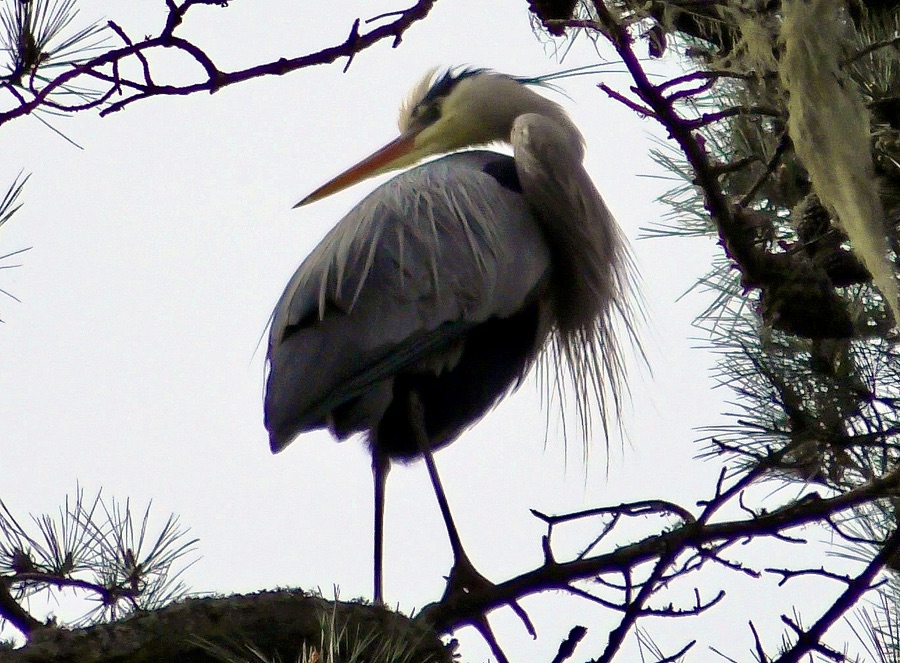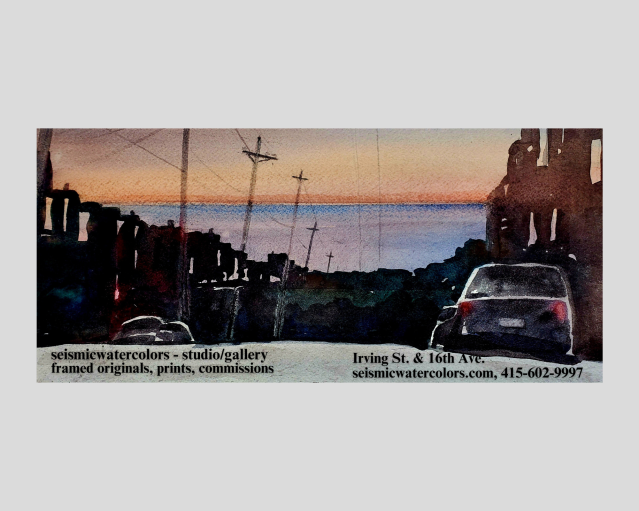By Thomas K. Pendergast
Golden Gate Park’s Stow Lake is now called Blue Heron Lake after the lake’s original namesake William W. Stow’s antisemitic past was brought to light.
On a 4-3 vote the SF Recreation and Park Commission made it official; from now on Blue Heron Lake will be the new name for one of the park’s more prominent destinations, along with the boathouse and drive circling around it.
“We are delighted with the name change,” said Nancy DeStefanis, executive director of the San Francisco Nature Education. “The herons mean a lot to thousands of people in San Francisco who have visited since I first identified and observed them in 1993.”
Although sightings of the Great Blue Herons in Golden Gate Park were recorded as early as 1930s, DeStefanis was the first to document them breeding there after she saw nests in the trees on a small island in the lake sitting between the boathouse and the larger island with the waterfall called Strawberry Hill.

She said the herons visit the lake annually, sometime between November and January, to start building and settling into their nests.
Their chicks hatch in April and then they have three months to learn how to fly, abandoning their nests around the end of June or early in July.
Throughout the intervening three decades, she has counted a total of 279 chicks fledge there and currently there are three active nests on two small islands at the lake.
DeStefanis said that as soon as District 7 Supervisor Myrna Melgar, whose district the park lies within, announced that Stow’s name would be replaced with something else she wrote Melgar to suggest Blue Heron Lake.
Then she found out that the San Francisco Standard website was conducting a poll for possible new names.
“We urged our members and supporters to vote for Blue Heron Lake and got over 900 votes; three times the second top vote getter,” she said.
The effort to rename the lake began a few years ago but didn’t really gain traction until redistricting put the lake in Melgar’s voting district and she found out that its namesake was openly and virulently antisemitic.
Stow served in the California State from 1854 to 1856 and became the speaker of the Assembly in 1855.
While serving in the Assembly, he made headlines when he spoke against Jewish people directly from the Assembly floor, saying “I have no sympathy with the Jews, and (I would) enforce a regulation that would eliminate them from not only our county but from the entire state. I am for a Jew tax that is so high that (Jews) would not be able to operate any more shops. They are a class of people here only to make money and who leave the country as soon as they make money.”
He also ran for California governor on the Know-Nothing Party ticket, a group that was notoriously xenophobic. Their platform called for the deportation of “foreign beggars” and “criminals,” a 21-year naturalization period for immigrants, mandatory Bible reading in schools, and barring all Catholics from holding public office.
“Over the last few weeks in our City we have seen a lot of conflict in discourse for things that are happening across the world,” Melgar said when she went in front of the commission before the vote. “I think this is a good moment to take a stand as San Franciscans that we live the values of St. Francis de Assisi, who is our City’s namesake; that we stand for peace and that we stand for tolerance and justice and that our values reflect that in the naming of things that we hold in our public trust. And Stow Lake is one of them.”
LaMonte’ Bishop, senior manager in policy and public affairs with the San Francisco Recreation and Parks Department, provided the commission with a little more background on Stow before they voted to strip the lake of his name.
After his short political career, Stow moved to San Francisco and became a successful attorney with a high-powered law firm that mostly handled land use issues.
According to Bishop, from 1878 to 1893 he became the “political strong arm” for the industrialist and railway magnate Collis P. Huntington, one of the men who promoted the Central Pacific Railroad’s extension across the West, making possible the first transcontinental railroad in 1869. Stow helped the railroads build through his ability to raise funds and gain political favors, becoming a key political strategist for Huntington.
In 1889 he joined the Recreation and Park Commission and raised money to build the lake in Golden Gate Park, which was completed in 1893.
Stow would die suddenly and unexpectedly two years later in 1895.
To select a new name, Bishop said, an informal citywide poll was conducted by the San Francisco Standard from Dec. 4th through the 17th, 2023.
Readers were asked to choose from a wide variety of candidates and a total of 3,336 votes were submitted. Of those, 985 were for Blue Heron Lake, with the runner up name of Strawberry Lake polling a distant second at 346 votes.
One of the other candidates was a Black woman named Mary Ellen Pleasant, known as the Rosa Parks of San Francisco after she sued the City for being denied a ride on a trolley car in 1867.
Almost 90 years later, her case was reportedly referenced by U.S. Supreme Court Justice Thurgood Marshall during the Rosa Parks case.
“We certainly don’t have enough things in our City named after women, particularly women of color,” Melgar told the commission. “But by far in our poll the most popular name was Blue Heron because of all of the great conservation work with the heron.”
The commission actually made two votes that day; the first being whether or not to strip Stow’s name from the lake.
That vote came in at six in favor and one against.
Voting against was Commissioner Larry Mazzola, who didn’t hesitate to say why he dissented.
“There’s no way I condone anything this guy did or said,” Mazzola explained. “Obviously, the dude was a scumbag racist crap-weasel.
“Growing up in this city for my whole life – 54 years – I know it as Stow Lake, I’ll always call it Stow Lake, even if the name gets changed.
“It’s just something that happened in the 1800s,” he elaborated. “If you go back and start looking at every street and everything in this city, you’re going to find a whole hell of a lot more.
“And you’re probably going to find some that were racist toward Italians. But I wouldn’t want to go change that name at this point. I think that there’s more important things that we should be doing and this isn’t one of them.”
Categories: Golden Gate Park










